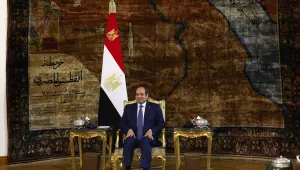
Download the PDF version:
Executive Summary
Kuwait has a long history of generosity and has been globally recognized for its humanitarian aid and philanthropic giving. The ruling family, the House of Al-Sabah, and merchant families have been prominent philanthropic leaders in Kuwait. More recently, the growth in personal wealth has allowed more individuals to engage in the charitable sector. Philanthropy in the country is becoming more organized, institutionalized, and visible. In turn, the government is increasingly engaged in regulating the sector.
Philanthropic giving in Kuwait is influenced by several factors. Most notable are the religious and cultural traditions of generosity found across the Arab region, particularly in the Gulf. Islamic religious beliefs and practices—such as zakat and waqf—continue to anchor much of the charitable giving in Kuwait today. In addition, the ruling family has engaged in and become a role model for philanthropy in the country and has actively encouraged Kuwaitis to become philanthropically engaged. Individuals, merchant families, and others are also motivated to give by fundamental family values and interest in establishing a family legacy.
The government has taken concerted efforts to regulate the philanthropic sector, including to ensure that all philanthropy addresses legitimate and approved philanthropic goals. Presently, the legal and policy environment for philanthropy appears to present challenges to the development of a more robust charitable sector. Like in other Gulf Cooperation Council (GCC) countries, registration of philanthropic institutions can be burdensome, regulations can be ambiguous, and there are strict limitations on fundraising. While many recognize the need for regulations, recent legislation may hinder the growth of institutional philanthropy in Kuwait.
In particular, giving to organizations outside of Kuwait has become more difficult. In recent decades, it appears that much philanthropy in Kuwait has been directed toward international causes. Thus, recent restrictions on international giving may be significantly reshaping the philanthropic landscape.
Organized or institutional philanthropy in Kuwait has grown significantly over the past 20 years. This study identified a total of 93 private foundations in Kuwait, of which 59 are considered active. Among the active foundations, over 90 percent were incorporated since 1999. The majority of foundations appear to be family-led. The organizations predominantly work in four key areas: religion; education; humanitarian relief and (immediate) poverty alleviation; and health. The foundations employ a mix of operational strategies, including grantmaking and operating their own internal programs.
Optimistically, Kuwait’s philanthropic future is bright. It builds on a long history of giving that is deeply embedded in Arab and Islamic culture. The Emir Sabah Al-Ahmad Al-Jaber Al-Sabah is committed to establishing Kuwait as a global philanthropic leader. The government is actively shaping the sector, and short-term policy obstacles may be resolved through future legislation. The growth of private foundations over the last two decades is a hopeful sign, and recent initiatives to promote and professionalize the sector are encouraging. Perhaps most promising are the observations that the next generation is committed to engaging in more, and more impactful, philanthropic giving.
El Marzouki, Zahira, Paula D. Johnson and Taufiq Rahim. “Philanthropy in Evolution: The Foundation Sector in the State of Kuwait.” June 2019



